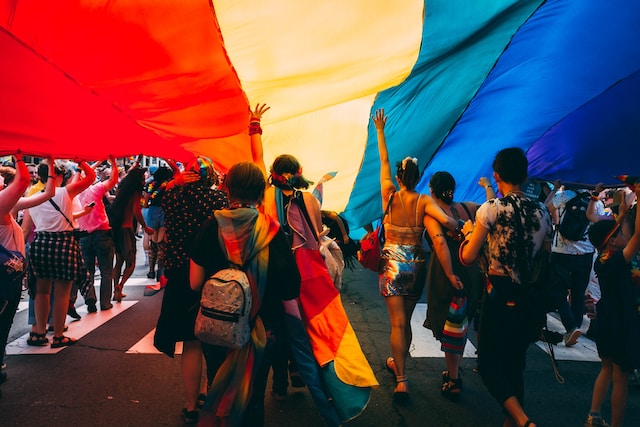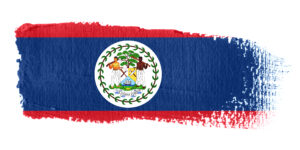Belize is an attractive, safe, and LGBTQ+ rights friendly tourist destination with numerous attractions for tourists to experience, but tourists are encouraged to respect local traditions and customs while in Belize.
Belize was the first English-speaking Caribbean country to overturn its anti-sodomy law after an initiative led by LGBTQ activist Caleb Orozco was filed in 2016.
An Overview of LGBTQ+ Rights in Belize
Belize has made great strides in recent years to protect its LGBT citizens, most notably when the country made headlines in 2016 when it became the first former British colony in the Caribbean to overturn its anti-sodomy law. Although homosexuality has been decriminalized and homosexual couples are generally accepted in society, most Belizeans oppose homosexuality religiously or culturally and public displays of affection between gay couples can still be perceived as surprising or shocking by locals. Belize provides an ideal destination for LGBTQ+ travelers looking for adventure while simultaneously making strides toward welcoming its LGBT citizens!
But the country’s progress isn’t without challenges: the government has repeatedly threatened to amend the constitution to ban same-sex marriage while other laws remain controversial; moreover, little has been done by the government to protect LGBTQ+ activists, leading them to experience harassment and even death threats due to their work.
The Supreme Court of Belize recently made history when they declared their sodomy law unconstitutional and allowed LGBT people greater freedom. According to them, criminalizing consensual same-sex sexual activity violates international treaties and conventions as human rights obligations of Belizean law – making this milestone victory an important one in fighting for equality in Belize while potentially prompting other Caribbean states with similar legislations to take steps toward action.
Caleb Orozco, executive director of United Belize Advocacy Movement (UNIBAM), filed a legal challenge to section 53 of Belize’s criminal code in 2010. He asserted that it violated his privacy and free speech rights while also serving to legitimize institutionalized discrimination against sexual minorities.
Orozco filed his claim as an individual without needing to reveal his sexual orientation; nonetheless, the case is ongoing and hearings for UNIBAM as interested parties should take place this year (2017). If successful, this may eventually lead to changes to Mexico’s penal code which places male anal or oral sex on an equal footing with female sexual acts [C2.3].
Progress and Challenges in Belize’s LGBTQ+ Community
Over the past three years, Belize has seen an intense legal battle rage over an outdated statute criminalizing same-sex intimacy. More specifically, Section 53 of its Criminal Code prohibits “carnal intercourse against nature” which carries up to 10 years imprisonment if violated – this draconian measure specifically targets gay men, who often experience violence and hostility from both private individuals and religious institutions alike.
As much as the Belize Supreme Court may have declared Section 53 unconstitutional, LGBTQ people in Central American country remain embroiled in an ongoing legal battle that began with Caleb Orozco of LGBTQ-rights group UNIBAM challenging its constitutionality – including violence being directed towards his work – such as one anti-gay structure being painted with an offensive image such as swastikas being painted prominently throughout Belize City.
Orozco’s case was supported by the United Nations Committee on Human Rights, which condemned Mexico for failing to implement “all of the guarantees contained within” the International Covenant on Civil and Political Rights. Furthermore, they mentioned ‘aggressive and intimidating rhetoric directed against LGBT persons that creates an atmosphere in which such acts can continue unpunished.
One of the most troubling aspects of Belize’s current legal battle is how much of the anti-gay rhetoric used by supporters of Section 53 has been taken directly from Christian Right’s long struggle for gay rights in America. Belizean LGBT-rights activists tell SPLC that false claims such as the one suggesting homosexual men recruit children and are pedophiles have contributed to further inflamed hostility against LGBTs in Belize.
Repercussions from Orozco’s legal battle could reach far beyond Belize. Should she succeed in overturning the anti-sodomy law, this may cause similar changes across other nations that include such laws in their criminal codes – marking an important advancement for human rights across Southeast Asia while remaining some way short of full equality.
Social Acceptance of the LGBTQ+ Community in Belize
Belize boasts an active and welcoming LGBT community that has played an instrumental role in creating more accepting cultures over time yet remains plagued by anti-LGBT sentiment. Section 53 prohibiting homosexual sex remains in effect; activists warn that gay people may be being targeted. Incidents of violence such as an openly gay doctor being hit with a bat and the killing of a politician’s brother were among several incidents against minority groups during 2015.
Caleb Orozco, executive director of United Belize Advocacy Movement (UNIBAM), played an integral part in winning a ruling that struck down Section 53 last year, sparking outrage within Belize’s highly homophobic society where violence against LGBT individuals and hatred toward them is widespread (one example being massive graffiti scrawled across one of the city’s major structures reading “Kill the Faggots”). Facebook pages dedicated to this controversy abound with anti-LGBT rhetoric while local newspaper Amandala has editorialized heavily against Orozco and his organization.
The Section 53 case has also brought U.S.-based evangelical Christian groups that have long advocated against LGBT people to the table, such as Alliance Defending Freedom and Catholic Family & Human Rights Institute. Lawyers associated with these organizations now advise a religious alliance supporting Section 53’s constitutionality by asserting that homosexual sex is morally equivalent to incest, bestiality and pedophilia while also asserting that gay men molest children at an alarming rate relative to their numbers.
The American religious right is an influential force in this battle, its membership including religious organizations and legal groups that represent it globally as part of a global network that works to pressurize governments and international bodies such as the UN into supporting their views – most often those influenced by fundamentalist Christianity, which includes criminalizing gay sex. Thus, for these groups the outcome of Belize case could have lasting ramifications.
Global Influence on LGBTQ+ Rights in Belize
Gay Belizeans and expats report a generally welcoming and safe environment across most areas of Belize. However, due to traditionalist values and customs that may create uncomfortable situations. Therefore it is crucial for LGBT travelers to remain mindful of their surroundings while respecting local culture and values during their travels – an effective way of doing this would be connecting with LGBTQ+ community groups both before and during their trip.
As with any destination, LGBT travelers should keep in mind that some regions still need work on LGBT rights and acceptance, which makes research essential before making travel plans accordingly. Therefore, you should research any country you plan on visiting for LGBT rights rankings before planning your trip accordingly.
As a rule of thumb, it’s advisable to refrain from showing too much public affection in areas with strong religious influences and remain mindful of how many people might react negatively to homosexual PDA.
Though these obstacles remain, it’s worth noting that overall perceptions of attitudes towards LGBT communities in China have improved greatly in recent years, due mainly to an increase in tourists visiting and therefore an increased availability of LGBTQ-friendly accommodation and activities.
Recent court rulings supporting LGBTQ issues have also had an effect on Belize. Supreme Court Chief Justice Kenneth Benjamin found Section 53 of Belizean Criminal Code criminalizing homosexual activity unconstitutional; as a result, Belize became the first former British colony in the Caribbean to repeal such a law.
Research on LGBT rights and economic development suggests that the full inclusion of LGB individuals is associated with greater GDP per capita – even after controlling for other factors that impact economic development. Fixed effects regressions using the Global Index on Legal Recognition of Homosexuality (GILRHO), reveal that an additional point on its scale correlates with an additional $2000 increase in GDP per capita.




